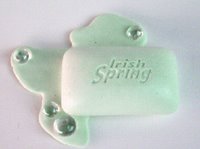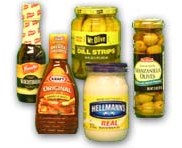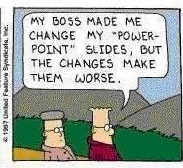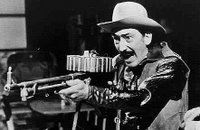write when you find work
 I had a job interview last Friday.
I had a job interview last Friday.A real job interview, one that found me changing my clothes in my hotel room at 9am, when I decided I really should wear something nicer than my usual jeans and long-sleeved black t-shirt. Something that included gray flannel and cashmere. And high heels. I’d brought high-heeled boots with me, but I hadn’t put them on yet.
I had to be at the interview at 9:30, and there I was at 9, in my hotel room changing clothes.
But you gotta wear high heels. High heels show that you’re trying. High heels show that you’re sufficiently self-aware to realize that you’re short and need to work on it. If you were a superstar, you’d grow; but if you’re me, you just try to pass by wearing heels. High heels demonstrate that you’re willing to suffer for the grander principles of capitalism, that you understand pain and will do what it takes to get the job done.
Yes, I’d brought the high-heeled boots with me, but my first morning impulse was to put back on the jeans I’d worn the day before – nothing wrong with them – and skip the high heels entirely. It was only these last minute misgivings that caused me to reconfigure my outfit.
I confess that I’ve always found job interviews mystifying, even though a great portion of your life is dedicated to coaching you for just such an occasion. There’s plenty of collective wisdom about what you should and shouldn’t do, and how you should answer the trick questions.
“Think of examples where you have successfully used the skills you've acquired.”
 This helpful hint brings to mind the time I used the scientific method to determine whether a bar of Irish Spring behaves like Ivory soap when you microwave it. In case you’re wondering, a bar of Ivory will expand like one of those Fourth of July snakes when it’s microwaved for a couple of minutes.
This helpful hint brings to mind the time I used the scientific method to determine whether a bar of Irish Spring behaves like Ivory soap when you microwave it. In case you’re wondering, a bar of Ivory will expand like one of those Fourth of July snakes when it’s microwaved for a couple of minutes. I performed such an experiment in the Pod 25 break room at Xerox PARC. And in case you’re wondering further, microwaved Irish Spring does not expand like a Fourth of July snake. Rather it just makes the break room smell like – and this should be no surprise – Irish Spring soap, only more so. A lot more so.
I performed such an experiment in the Pod 25 break room at Xerox PARC. And in case you’re wondering further, microwaved Irish Spring does not expand like a Fourth of July snake. Rather it just makes the break room smell like – and this should be no surprise – Irish Spring soap, only more so. A lot more so.In fact, if you microwave Irish Spring on HIGH for 2 minutes, 30 seconds, the smell is so strong that tears will well up in your eyes. And tears will well up in your co-workers’ eyes too, the co-workers who have popped into the break room for a spot of afternoon coffee and half of the last doughnut, only to encounter the results of your inquiry. They’d have been impressed with my command of empirical methods if modesty hadn’t compelled me to duck into the Ladies Room across the hall.
That’d be a rather good example of the successful combination of several skills, I’d think. Formulating tractable research questions. Employing empirical methods. Using the resources at hand. Surprising one’s colleagues with one’s inventiveness. Escaping blame.
There’s so much advice like this for the well-prepared job seeker: sample questions, things to do in advance…
 And forgodssakes spit out that gum! No gum-popping!
And forgodssakes spit out that gum! No gum-popping!They tell you that too. Clean fingernails. Firm handshake. No gum. Good posture. Promptness.
But then – leveling his sights on a century’s worth of self-help books, everything from Dale Carnegie’s seminal How to Win Friends and Influence People through that modern job-seeking classic What Color is Your Parachute and the practical stylings of Help! My Job Interview Is Tomorrow! – in his New Yorker article “The New Boy Network”, Malcolm Gladwell made the claim that it’s really all over in the first two seconds, while you shake hands and look each other in the eye. After that, it’s all about helping the interviewer support the decision he’s already made.
In other words, I’m doomed from the get-go, high heels or no.
 It all started in fifth grade, when Mrs. Perkins went around the room and made every kid answer that soul-deadening question, “What do you want to be when you grow up?”
It all started in fifth grade, when Mrs. Perkins went around the room and made every kid answer that soul-deadening question, “What do you want to be when you grow up?”They do this, fifth grade teachers, in hopes of eliciting naive and charming answers. We were too old to say things like “fireman” or “ballerina” and this took place in LA, so no one would’ve been so blatantly unsophisticated that they’d cop to wanting to be a grocer, a farmer, a nurse, or a mechanic. And we were too young for any of the girls to say “rich divorcee,” although certainly that’s how several of my more attractive classmates realized their ambitions.
David, a chubby freckled Jewish boy, wanted to be a producer in Hollywood; smooth-haired Laurie wanted to be a realtor; Dana, a girl who drew hyperrealistic horses, wanted to be an illustrator; Jeff, a loud-voiced flirt, wanted to be a race-car driver.
There may’ve been a few doctors and a veterinarian or two among the other horse-y girls. Perhaps there was a painter or a poet or two among the kids who’d already tried Kools or Marlboros, a clear sign of an artistic temperament. Most of the pro athletes we knew were tennis players, golfers, or surfers – no-one had basketball or football written into their future. We were little white and Asian kids, college bound, secure, with no shortage of self-esteem.
When Mrs. Perkins got to me, I said, “I want to follow in my father’s footsteps.” This was just the kind of sweetly naive thing she wanted to hear, the perfect hook.
“And what does your father do?” she asked.
“He’s unemployed,” I said, hitting my stride. “That’s what I want to be when I grow up.”
I’m sure that bit of smart-assery went into my Permanent Record. Everything else seemed to.
Unlike Malcolm Gladwell, I’d always assumed that the make-or-break part of the job interview was the interview meal (or meals if you’re on one of the multiple day interviews or you’re from out of town and your host takes you to dinner). That’s when you let down your guard and everyone figures out what you’d be like to have around for years on end. If you’re a loud chewer or you talk with your mouth full, everyone will know. Eating disorders, inflexibility, dyspepsia – it’s all there for ready examination.
You’re supposed to be agreeable, I suppose, and demonstrate your adventurous and catholic eating habits. My college boyfriend didn’t eat cheese in any way (whey?), shape, or form. He had a thing for Hamburger Helper, but only the flavors without cheese, of which I remember there being perhaps four. [Note: there are far fewer now – most flavors are prefaced with the word “cheesy”, as in “Cheesy Hashbrowns”.] So he went to his first job interview out of college and they took him out for pizza. He ate pizza. In four years, I’d never seen him eat cheese. He chowed down on that interview lunch pizza though.
You take one for the team. You declare your love for salmon. You suddenly drop that dislike for oak-y chardonnay.
For the last decade or so, companies like Google and Microsoft interview by asking the applicant to solve programming problems at the whiteboard. I’ve never had to perform in such a way, thank god. I’m much better at pop culture trivia and word games.
 “Each of the points on Lady Liberty’s crown represents a condiment. Name them.”
“Each of the points on Lady Liberty’s crown represents a condiment. Name them.”“Catsup. Mustard. Mayonnaise. Relish. Jalapenos. Um… Secret Sauce. And… Wait! Wait! Don’t tell me. Um… Ranch Dressing.”
 I know Ranch Dressing is a miserable guess, but it’s become a major condiment group in the Middle West. Everything is served with a generous vat of Ranch Dressing.
I know Ranch Dressing is a miserable guess, but it’s become a major condiment group in the Middle West. Everything is served with a generous vat of Ranch Dressing.“We like you so much that we’ll let you get away with that answer,” the interviewer in my daydreams tells me. “Just this once. Because you're our kind of trophy hire.”
It’d be better to have interview questions like that. You’d know right away what kind of lunchtime companion your interviewee is, whether they’d be fun to talk to even if that loud chewing is going to drive you nuts. And you’d know whether they’d be able to help you with the crossword puzzles that you do when you’re feeling droopy in the mid-afternoon.
 Instead, these days they watch you try to figure out how to use the new one-cup coffee maker. It’d be a swell intelligence test, except that often the interviewer also fails and both parties end up with a steaming hot cup of what looks to be dishwater.
Instead, these days they watch you try to figure out how to use the new one-cup coffee maker. It’d be a swell intelligence test, except that often the interviewer also fails and both parties end up with a steaming hot cup of what looks to be dishwater.The real test is to figure out how to get rid of the steaming hot cup of dishwater without looking like an assclown.
Is the drain in the kitchenette sink clogged? Does the cup go into the recycling bin or into the trash? There's much to be revealed in the ditching-the-poorly-made-coffee process. Unfortunately, you haven't had any coffee yet, so you're likely to feel a bit sluggish.
A bit slow.
 Lucky thing that there are Starbucks around almost every corner. I almost expect to find a mini Starbucks store in my briefcase this time. Maybe I would if I upended it and emptied it out. There’s something in there that’s awfully, awfully heavy. Very likely a Starbucks. And a barista to make the coffee.
Lucky thing that there are Starbucks around almost every corner. I almost expect to find a mini Starbucks store in my briefcase this time. Maybe I would if I upended it and emptied it out. There’s something in there that’s awfully, awfully heavy. Very likely a Starbucks. And a barista to make the coffee.During my first real job interview at Tough Shit Corp, Bill Liles asked me how I’d write a Fortran subroutine that calculated the quadratic formula. I don’t remember what I told him, but it must’ve been satisfactory. I got the job. I didn’t wear high heels then. I wore tatami flip-flops and thrift store jeans.
I didn’t know how good I had it. Didn’t know.
I wore my boots on Friday and tottered around like a not-quite-competent transvestite.
 I had a salad from the salad bar for lunch, choosing nothing too large nor nothing too round so that I’d have no fork mishaps. Cherry tomatoes? Bad idea. They’re squirters. Spring mix? Bad idea. Unless you saw up those lettuce leaves with your plastic knife, you’re apt to look like a dinosaur with greens dripping from the corners of your mouth. Garbanzo beans? Bad idea. The little devils roll. And roll. Once they get started, they know no boundaries. You’re apt to send one halfway across the cafeteria. Celery? Bad idea. They don’t call it nature’s dental floss for nothing. Carrots? Uh-uh. Can’t approach them with a fork. Pickled beets? They stain.
I had a salad from the salad bar for lunch, choosing nothing too large nor nothing too round so that I’d have no fork mishaps. Cherry tomatoes? Bad idea. They’re squirters. Spring mix? Bad idea. Unless you saw up those lettuce leaves with your plastic knife, you’re apt to look like a dinosaur with greens dripping from the corners of your mouth. Garbanzo beans? Bad idea. The little devils roll. And roll. Once they get started, they know no boundaries. You’re apt to send one halfway across the cafeteria. Celery? Bad idea. They don’t call it nature’s dental floss for nothing. Carrots? Uh-uh. Can’t approach them with a fork. Pickled beets? They stain.Basically what you want to do is make a salad entirely out of tofu cubes and sliced black olives.
So I did. It looks nice. Geometric. Tidy. Black-and-white. Artistic.
Marcia has told me that a date is a job interview for sex. Ever since she told me this, it has interfered with my conceptualization of a job interview as an interview for a job. Which is what it is.
Often we forget that part: that once you’ve snagged the job, it’s only the beginning.
 Then you have to do the job. Whatever it is. And it’s never as good as it sounded when you interviewed because the people you’ve talked to have left out the everyday stuff. The annoying bits. The translation from the job title and the good office to the reason why every door on your corridor has one of those awful Dilbert comics taped to it. The email that you have to read and respond to. The meetings you have to attend. The PowerPoint decks you now own. The phone calls you have to make. The fact that the cafeteria’s been going downhill steadily for the last 3 years. All that stuff that makes a job a job.
Then you have to do the job. Whatever it is. And it’s never as good as it sounded when you interviewed because the people you’ve talked to have left out the everyday stuff. The annoying bits. The translation from the job title and the good office to the reason why every door on your corridor has one of those awful Dilbert comics taped to it. The email that you have to read and respond to. The meetings you have to attend. The PowerPoint decks you now own. The phone calls you have to make. The fact that the cafeteria’s been going downhill steadily for the last 3 years. All that stuff that makes a job a job.This is work, not play.
It was easier when I was fresh from grad school, when my major concern was to stop doing what I’d been doing and start doing something else. Anything else. All that mattered was that it had a paycheck associated with it so I could pay off my loans and that I could commute to it by bicycle because I wanted to. The commute, I decided, should not involve any steep hills either.
 I ended up with a job in a SCIF. For those of you who don’t know what a SCIF is, let it suffice to say that you have no need to know what a SCIF is. During that job interview, they couldn’t tell me what the job was about, nor would they show me where the offices were. All I remember is my interviewer’s giant RIT class ring, his big pink fleshy hands, and his thinning blond hair: Malcolm Gladwell’s two second impression. I didn’t much like him and had no idea what the job entailed, but it was only 4.5 miles from where I lived and there were no steep hills involved in my commute. I took the job, whatever it was.
I ended up with a job in a SCIF. For those of you who don’t know what a SCIF is, let it suffice to say that you have no need to know what a SCIF is. During that job interview, they couldn’t tell me what the job was about, nor would they show me where the offices were. All I remember is my interviewer’s giant RIT class ring, his big pink fleshy hands, and his thinning blond hair: Malcolm Gladwell’s two second impression. I didn’t much like him and had no idea what the job entailed, but it was only 4.5 miles from where I lived and there were no steep hills involved in my commute. I took the job, whatever it was.And I never saw Mr. RIT Class Ring again.
This is often true: you’ll never see the people you interview with again, even if you get the job and subsequently work at the place for a decade or more. Even if you got on with your interviewer like gangbusters and you felt like you were going to be the best of friends. Friends: from mailroom to boardroom. You can envision the docudrama that is optioned from your best-selling autobiography; the dust jacket photo shows the two of you with your arms around each other’s shoulders in an acceptable man-hug.
But what you need to understand is that these interviewers are wholly imaginary; they are the product of an HR focus group. So the guy who interviewed you? Forget about him. You’ll never see him again. I promise. It’s just bait.
 And in the long run, when they ask you if you have any questions – because they will invariably ask you if you have any questions and you really should be prepared to remove your hands from your mouth and ask an intelligent question – all you have to remember is Jimmy Carl Black’s classic line from 200 Motels:
And in the long run, when they ask you if you have any questions – because they will invariably ask you if you have any questions and you really should be prepared to remove your hands from your mouth and ask an intelligent question – all you have to remember is Jimmy Carl Black’s classic line from 200 Motels:“Where’s the beer and when do we get paid?”
That should do it.
Then you can support me. But whatever happens, write when you find work.

4 Comments:
Damn near peed my pants with the salad thing. So that's what was going on in your brain with those color co-ordinated salads in the parc caf.
xo
f
I'm about to start looking for a job and comtemplating going through another round of job interviews in the next month, and ran across your post while doing some brushing up. Hilarious! Wonderful post. Although that part about doing problems at the board has me a little worried.
Janine
nice
In this humorous excerpt, the speaker's frustration with winter attire highlights the importance of understanding consumer preferences in marketing management assignment help writers. Just as the speaker seeks the perfect winter accessories, marketers must identify and meet consumer needs to succeed. Analyzing trends, preferences, and demographics helps tailor products and messaging effectively. The passage underscores the significance of market research and consumer insight. When crafting marketing strategies, it's essential to recognize and address consumer desires to enhance product appeal and competitiveness. For assistance with marketing management assignments, consider seeking expert guidance to navigate market complexities and optimize strategies for success.
Post a Comment
<< Home